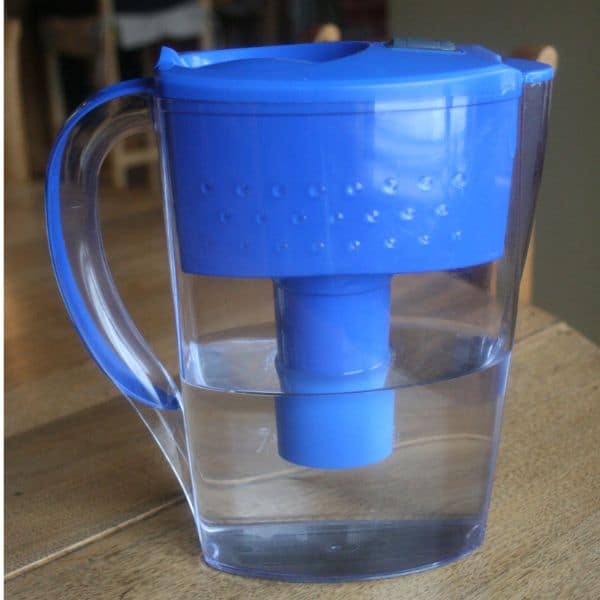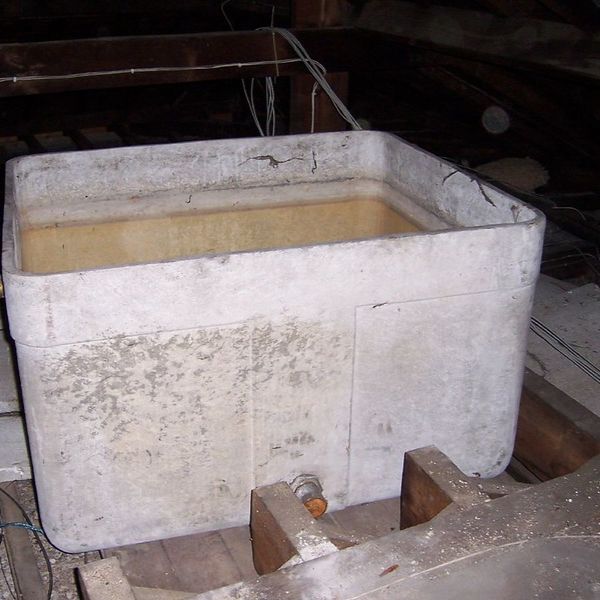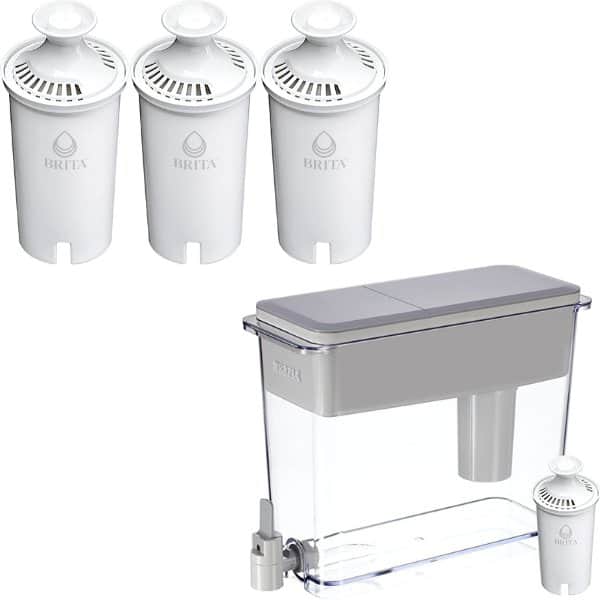How Do Brita Filters Work?
Brita filters are a convenient and affordable way of ensuring your drinking water is clean and safe for consumption. But how do Brita filters filter water?
At the heart of every Brita filter is activated carbon made from coconut shells, wood, or coal. The carbon attracts certain water impurities like chlorine, sediment, volatile organic compounds (VOCs), and other contaminants. When the water passes through the activated carbon filter, these impurities stick to its surface while pure water flows out on the other end.
But that’s not all – Brita carbon block filters also contain ion exchange resin beads that help remove heavy metals such as lead and copper from tap water.

Do Brita Filters Remove Iron?
Many wonders if Brita filters effectively remove iron from their drinking water. Iron is a common impurity found in well water, and it can also be present in municipal water systems that use iron pipes.
Brita filters can remove some amount of iron from drinking water. According to Brita’s official website, their standard filter cartridges can reduce the amount of iron in your water by up to 2 mg/L (milligrams per liter). This may not eliminate all traces of iron, but it can make a noticeable difference in the taste and smell of your drinking water. So, homeowners should use an iron filter for well water to get pure water without any excess iron in it.
What Contaminants Do Brita Filters Remove?
If you want to use a Brita Filter for removing iron and manganese from water, it is best to do testing for iron levels in your water. If there is a moderate amount of iron in your water then using a Brita filter is fine, but, if there is too much presence of iron in the water then you may need to get an iron filter. However, Brita filters have become a go-to solution for households to filter out the following contaminants in the water.
Asbestos
Brita has been a trusted household name for over 50 years, providing filtered water solutions that are both affordable and convenient. But did you know that Brita filters can also remove asbestos from tap water? Asbestos is a naturally occurring mineral fiber that was commonly used in construction materials until it was discovered to be carcinogenic.
Fortunately, Brita Filters use activated carbon and ion exchange resin to effectively remove asbestos fibers from tap water, protecting your family from this harmful substance. So not only do Brita filters improve the taste and clarity of your drinking water, but they also provide an added layer of protection against dangerous contaminants like asbestos.
Chlorine
The key benefit of using a Brita sink water filter is its ability to remove chlorine, often added to municipal tap water as a disinfectant. While chlorine helps kill bacteria and viruses, it also leaves an unpleasant taste and odor that can be off-putting.
The process by which Brita filters remove chlorine from water involves activated carbon. The carbon in the filter traps impurities, including chlorine, while allowing clean water molecules to pass through. As a result, your drinking water tastes better and smells fresher without any unpleasant aftertaste.

Heavy Metals
Heavy metals such as lead, mercury, and cadmium can pose serious health risks if consumed in high amounts. These toxins can find their way into our water supply through various sources such as industrial waste, old pipes, and even natural deposits in the ground. Fortunately, Brita pitchers use activated carbon to remove these harmful contaminants from your tap water effectively.
Volatile Organic Compounds
VOCs are chemicals that can easily evaporate into the air, but can also dissolve in water, potentially causing harmful effects on our health. Activated carbon is the key component in Brita filters responsible for removing VOCs. This material has millions of tiny pores that trap pollutants as they pass through the filter. The activated carbon works by adsorption, which attracts and holds onto impurities like a magnet.
While not all VOCs are harmful, some can be toxic or carcinogenic at high levels. Using a Brita filter can significantly reduce exposure to these chemicals and ensure you’re consuming cleaner, safer drinking water.
Pesticides
Brita filters use activated carbon, which can absorb organic compounds like pesticides. The filter works by trapping the pesticide molecules within its pores as water passes through it. This means that when you drink from a Brita-filtered water source, you can rest assured that your drinking water is free of harmful chemicals.
Pharmaceutical residues
Brita filters also effectively remove pharmaceutical residues, such as antibiotics and hormones, from drinking water. This is particularly important as these residues can harm the environment and human health.

Do Brita Filters Remove Rust?
Brita filters can remove rust from your drinking water. These filters use activated carbon and ion exchange resin to remove impurities from tap water. These materials are highly effective at trapping and removing contaminants like chlorine, lead, mercury, and even microscopic particles like rust.
Do Brita Filters Remove the Salt?
Brita filters do remove salt from the water. The filter inside the pitcher is designed to reduce chlorine taste and odor, mercury, copper, cadmium, zinc, and particulates associated with sediment. It also reduces substances that may be present in your tap water, such as copper and lead. These filtration steps can help remove salts from tap water by up to 98%.
It’s important to note that while Brita filters can significantly reduce salt levels in your drinking water, they may not completely eliminate all types of salts.

Do Brita Filters Remove Calcium and Magnesium?
Brita filters do not entirely remove calcium and magnesium from water but reduce them to some extent. The activated carbon in the filter can remove some minerals, but it is not designed specifically for this purpose. Instead, Brita filters focus on reducing chlorine levels, which can improve the taste and odor of your drinking water.
Conclusion
It is possible to remove iron from water using a Brita filter. This type of filter is not designed to remove iron efficiently or in large quantities. However, Brita filters can remove up to 99 percent of certain contaminants from your drinking water, such as asbestos, chlorine, heavy metals, VOCs, pesticides, and pharmaceutical residues.

